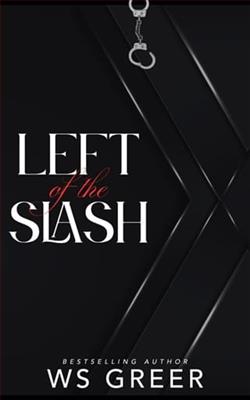Page 150 of Reap the Wind (Cassandra Palmer 7)
“Can she make him invisible?” I asked, wondering what kind of trick Rian was pulling.
“No,” Mircea told me. “Or, if she can, she has never chosen to do so in four hundred years.”
“What can she do?” I asked, because I didn’t think normal incubus powers were likely to help here. In fact, I didn’t know what would, minus an army. Which Rian didn’t have.
“What can he do?” Adra asked, coming over. And dropping down between the consul and me, to swing his legs over the opening.
“What?”
“What abilities does he have?”
“What difference does that make?” Nothing he had was going to help him now.
But Adra didn’t seem to agree.
“It makes all the difference. That is what possession does. Occasionally, yes, it can give you powers you wouldn’t normally have. But far more often, it simply increases the ones you do have.”
“Increases by how much?” Marlowe asked sharply.
Adra smiled at him and kicked his legs some more.
The consul wasn’t the only one having a good time, I thought.
“That would depend on the demon,” Adra said. “But while incubi are not among the more powerful of our kind, Rian has been on earth for a rather . . . extended stay. She has acquired a great deal of power, and therefore has more to lend.”
“But what can she do?” I repeated.
Adra shrugged. “What can your vampire do?” he asked again. “Possession for humans will not increase their power greatly since, you’ll forgive me, they have little to enhance. But a vampire . . . well. Strength, speed, all the senses, and any master’s powers the vampire may have would be greatly augmented.”
“You know about master’s powers?” the consul asked.
Adra looked at her. “My dear.”
“How greatly?” Marlowe repeated.
Adra shrugged. “See for yourself.”
And, suddenly, we were. Casanova stepped out from behind the giant, hollowed-out shell, which by now was all that remained of his former opponent. He looked impossibly tiny from what had to be a couple of football fields away. Unlike his opponent, which saw him at almost the same moment we did, and went boiling down the length of the arena toward him.
“Mircea—” I said, gripping his hand.
“I’ve told him what we know. It will be enough or it will not.”
He sounded calm, but his hand was
almost squeezing mine in two.
But I hardly noticed, because the hydra had already crossed one football field’s worth and was tearing up the second, and Casanova still just stood there. Not flinching, not moving, not panicking. Not doing anything—until the creature was almost on top of him. And then he moved, so fast I couldn’t even track him with my eyes.
But I could track the results.
The giant beetle shell suddenly popped up out of the ground and went sailing through the air, cutting a dark swath across the arena like a massive Frisbee. A massive Frisbee with a knifelike edge and enough force behind it to have bisected a mountain—or a dozen thick, snakelike necks, snipping them off like tender flower stems.
Heads rolled everywhere, rivers of blood spurted, and a tiny figure of a man leapt for the thrashing body before it could regrow anything it had lost. I didn’t see what he used for a knife—maybe another piece of shell. But whatever it was, it worked, piercing deep and sending the thing rolling onto its back, writhing in a spreading stain while the crowd went wild and Casanova stabbed it, over and over like a madman, until he was coated with as much black gore as the sand.
And the consul was yelling—yes, yelling—dignity forgotten, hair in her face, as jubilant as the crowd. Marlowe was staring, from Casanova to her to Adra and back again, his face blank but his eyes burning. And Mircea’s arm was tightening, dragging me back into the other room.
Chapter Thirty-four















